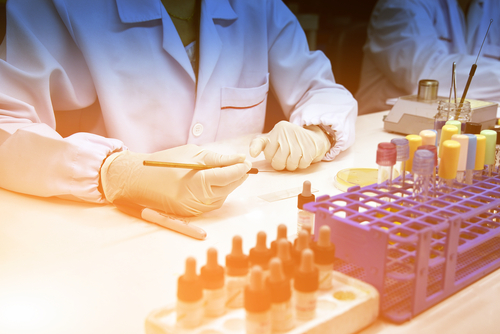Topical EGF Supplements May Improve Oral Damage in Sjögren’s Patients

Adding supplements of epidermal growth factor — a signaling protein — to the current treatment regimens of Sjögren’s syndrome, may improve oral damage and quality of life in patients with the disease, a new study suggests.
The study, “Deterioration in saliva quality in patients with Sjögren’s syndrome: impact of decrease in salivary epidermal growth factor on the severity of intraoral manifestations,” was published in the journal Inflammation and Regeneration.
Sjögren’s syndrome is an autoimmune disease characterized by a malfunction of the salivary and lacrimal glands. Patients with the disease produce much less saliva than healthy individuals, ultimately leading to dry mouth syndrome and damage of the oral cavity.
But whether these changes are caused by reduced saliva production, or by other changes in saliva components, is still not known.
Researchers at Hyogo College of Medicine in Japan addressed if EGF, a signaling molecule found in saliva, could contribute to the oral symptoms of Sjögren’s syndrome.
EGF, an abbreviation for epidermal growth factor, plays a key role in wound healing by promoting the growth and proliferation of cells in the damaged tissue. EGF is a component of saliva and is known to be involved in wound healing processes in the oral cavity, but its role in Sjögren’s syndrome has not been explored.
The researchers from Japan examined changes in salivary EGF levels in 40 patients with Sjögren’s and 23 individuals without salivary impairments. Patients with the disease had roughly 30 percent less EGF in their saliva than those without the condition, the team found.
Researchers examined patients based on the duration of the disease. Those with the disease for 5.6 years or less were included in the short-duration group, and those with the disease for more than 5.6 years were included in the long-duration group.
Patients in the long-duration group had poorer oral health-related quality of life and reduced saliva flow rate, compared to those in the short-duration group. Also, patients with long-term Sjögren’s syndrome had 70 percent lower EGF levels than those with short-duration disease.
The investigators saw similar results when patients were examined based on the severity of oral symptoms. Patients with a more severe oral condition had had the disease for longer periods and had lower salivary rates. Also, they had 43 percent lower EGF levels compared to those with milder symptoms.
After a three-year follow-up time, patients with worse oral health-related quality of life had significantly worse salivary flow rate and EGF levels, compared to baseline. Similarly, patients with the disease for more than six years also had lower EGF levels, but their salivary flow rates remained the same.
Collectively, the results suggest that salivary EGF levels play a role in Sjögren’s syndrome, contributing for the patients’ oral health-related quality of life.
“These results strongly indicate that topical EGF application in the treatment of oral mucosal manifestations in patients with [Sjögren’s syndrome] has not only an improving effect by EGF supplementation in patients with prolonged disease duration, but also a prophylactic [preventive] effect in patients with short disease duration,” the investigators concluded.






